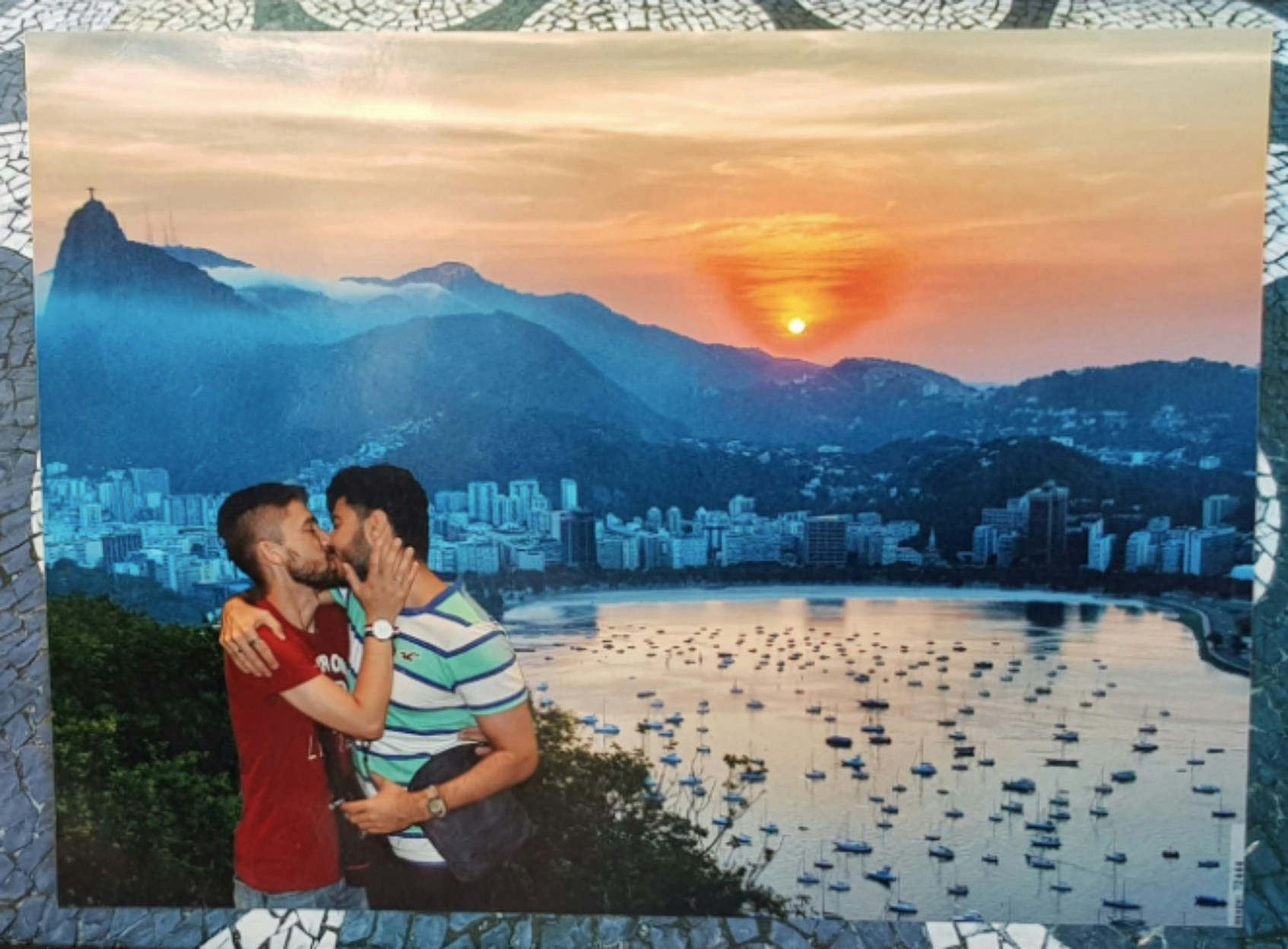Trolls Attack Photographer Who Captured 2 Guys Kissing on Valentine’s Day in Greece
 |
| (theintercept) |
ATHENS (Thomson Reuters Foundation) - When Chloe Kritharas Devienne was asked to photograph 28 couples kissing and cuddling in Greece while holding a bar of Lacta chocolate, she did not expect to be attacked by trolls.
The Valentine’s Day adverts for the popular chocolate brand were the first to feature same-sex and interracial couples in Greece, a conservative country where the Orthodox Church holds sway and same-sex couples cannot marry or adopt children.
“People were tweeting pictures of my face, saying, ‘This is the photographer who did this’,” she told the Thomson Reuters Foundation, adding that critics also posted links to her work documenting refugees to portray her as excessively liberal.
“Personally I love both men and women. I thought that nothing would make me happier than to have these pictures all over Athens so that all these homophobic people are forced to look at them ... It’s been the number one subject in Greece.”
A growing number of businesses around the world are including same-sex couples in their marketing strategies in a bid to reflect social diversity and to capture the lucrative LGBT+ market.
Homophobic attacks by far-right gangs are not uncommon in Greece, where civil partnerships were legalized in 2015 amid protests from the Communist party, right-wingers and the church.
Kritharas Devienne saw working for Lacta - made by the world’s No. 2 confectioner Mondelez International - as a chance to change minds in the Mediterranean country where depictions of same-sex love are still taboo.
“In Greece people are very, very homophobic,” she said. “The church has made it very clear it considers homosexuality a sin.”
A Greek orthodox bishop who urged his followed to “spit on” gay people was imprisoned in January for inciting violence after an earlier trial found him not guilty, local media reported.
While Lacta urged Facebook users to “embrace all tastes of love”, the hundreds of comments it received included, “You must be ashamed of yourself” and “Little children will see this! What standards will you pass to them I would like to know”.
SURPRISE
Even in Finland, which has some of the world’s most progressive LGBT+ laws, the use of an image of a lesbian couple to promote Kulta Katriina coffee on Facebook sparked hateful comments from about 3 percent of users.
“We wanted a Valentine’s image that would symbolize both love and friendship, and also equality,” said Heidi Paivaniemi, marketing manager of the Finnish company, which promotes itself as an ethical brand.
But one post said, “Strange that you would need to advertise coffee through homosexuals. I will stop using your brand”. Another said they now feared that Kulta Katriina was poisonous.
“It was a surprise for us, because this type of campaign is really not something new in Finland,” said Paivaniemi.
In India, where gay sex was legalized in September, a Valentine’s Day video ad on Facebook for chocolate by Big Basket, the country’s biggest online supermarket, showed a young lesbian couple kissing and holding hands.
“The reactions have been pretty overwhelming, and people were pleased that I was playing something different,” said Shatabdi Chakraborty, who played one of the lovers.
But she does not believe adverts alone can change mindsets as they rarely reach rural areas where LGBT+ people can face violence from their own families, including corrective rape to ‘cure’ gay women.
“We have adverts telling us why we shouldn’t use plastic or cut down trees, but people still do these things,” she said.
This year’s LGBT+ Valentine’s adverts are mostly digital, rather than outdoors or on TV - the most expensive formats with the biggest reach.
In Greece, Lacta did not use Kritharas Devienne’s images in its outdoor billboards, which only show straight couples.
“I know it has been all over the internet, but not everyone will have the internet,” she said with disappointment.
“My goal was to see these couples all over Athens"
Comments